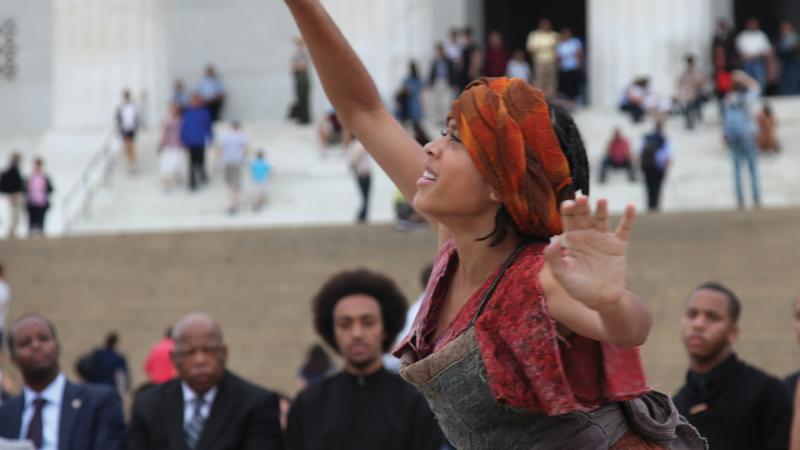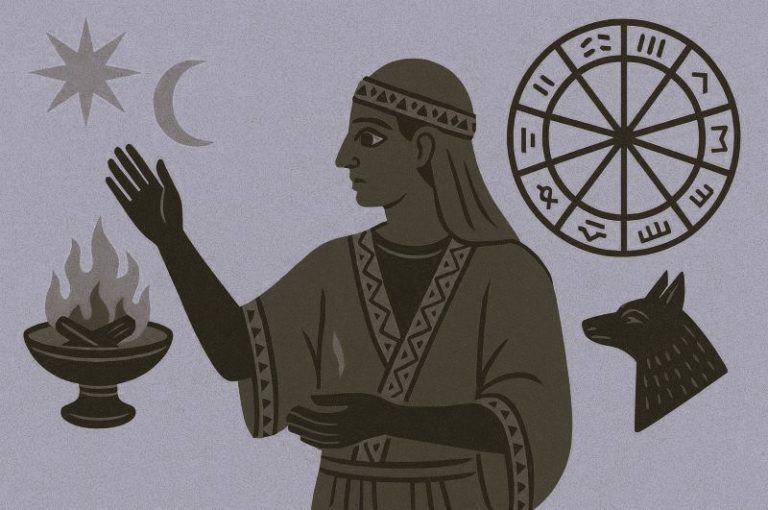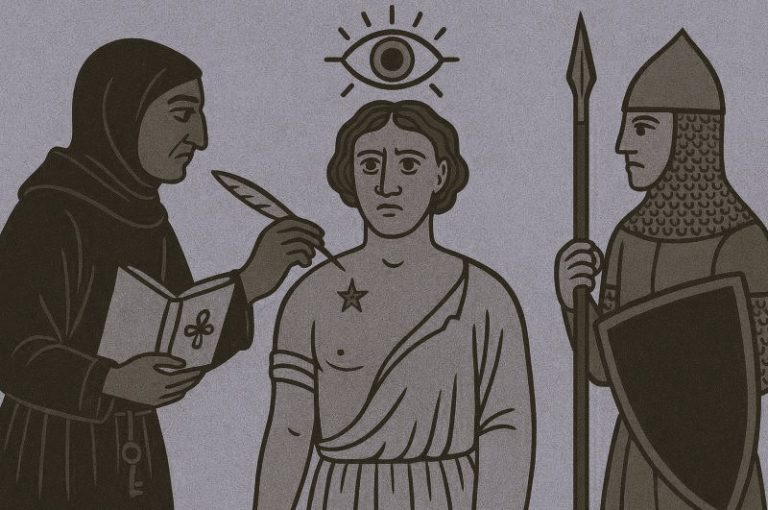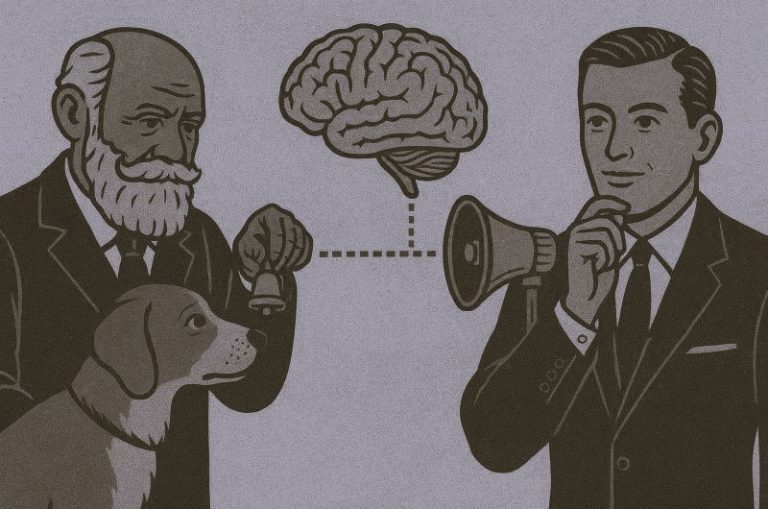


By Kevin Mahnken
Editorial Intern
National Endowment for the Humanities (NEH)
As he stood before hundreds of rapt listeners at the steps of the Lincoln Memorial, Congressman John Lewis took a moment to reflect on the opening passage of the Declaration of Independence. Echoing others who have spoken from the steps, he recited Thomas Jefferson’s paean to inherent equality and inalienable rights and then paused to acknowledge the failure and contradiction haunting the Founders’ dream—their refusal to extend those rights to all Americans.
“We must never, ever forget,” Lewis said, “that it is this central conflict which gave rise to the Emancipation Proclamation, to the modern-day civil rights movement of the 1960s, and hundreds, maybe even thousands, of uprisings and revolts in between, and ever since. This is the conflict at the very heart of every war, at the center of all discord, and at the core of man’s unending search for freedom.”
Lewis, a thirteen-term U.S. Representative and symbol of the struggle for African-American equality, addressed the crowd as part of Celebrating Freedom, NEH’s daylong tribute to the 150th anniversary of the preliminary Emancipation Proclamation. The Lincoln Memorial event, organized in conjunction with Howard University, featured readings and performances before culminating in the congressman’s oration, “Reflections on the Freedom Struggle.” Lewis struck a contemplative tone as he addressed his remarks to future generations of Americans. “The story of the Emancipation Proclamation,” he said, “reveals that . . . there is nothing—no power on earth—that can stand against the truth. The simple truth: Liberation, freedom, is the ultimate future of all humanity. And our history teaches us that every effort to divide is bound to fail.”

Few can summon the grace and solemnity that have always come naturally to Lewis, the former Freedom Rider whose head still bears the marks of an Alabama state trooper’s nightstick. And, yet, authoritative as his words may sound to modern ears, nothing about the emancipation of the slaves in the Confederacy appeared foreordained in September 1862, as a group of historians reminded an audience earlier in the day at the Smithsonian’s National Museum of American History. The panel, moderated by University of Richmond president Edward L. Ayers, included Pulitzer Prize-winning author Eric Foner, Duke University professor Thavolia Glymph, University of Virginia professor Gary Gallagher, and Christy Coleman, president and CEO of the American Civil War Center in Richmond, Virginia. Their talk examined everything from President Lincoln’s canny and controversial decision to issue the proclamation to its influence on the war effort to the disappointed reactions of northern abolitionists. From the many strands of the discussion, one inescapable theme emerged—the tenuousness and instability that characterized all the events of that autumn, a period when momentum shifted between the Union and the Confederacy with each passing month. As Ayers put it, “Everything is up in the air.”
Lincoln had drafted a preliminary version of the proclamation in July and submitted it to his cabinet as an atmosphere of gloom began to envelop the capital. The document lay in his desk drawer for months while Lincoln awaited news of some marginal triumph, aware that its announcement would smack of desperation if rolled out during a time of military distress. This need was met, barely, at Antietam, a blood-soaked “victory” that temporarily reversed the advances of Robert E. Lee’s Army of Northern Virginia. The southern commander was himself placing a political wager. “There were these congressional elections coming up,” Foner said, “and if Lee could win a battle on Union soil, he felt that would really undermine Northern morale, maybe lead to a repudiation of the Lincoln administration.”
Although the Civil War’s sesquicentennial seems to augur a new season of Lincoln worship, the speakers for the most part steered clear of the sixteenth president’s long shadow, and instead focused on the tide of released and fugitive slaves making their way to the Union lines. The Great Emancipator’s hand was forced, according to Coleman, partly because escaped slaves were “not sitting back and waiting for work. They are going into these camps, they are pressing these issues, and these commanding officers themselves are having to make these choices.” The men and women who braved the journey to the camps were often met with the outright racism of officers like William Tecumseh Sherman, an apolitical martinet who saw himself as fighting to preserve the Union, not liberate slaves. Still they came. Though Lincoln’s announcement carried little immediate effect, it affirmed a tradition of resistance and self-emancipation begun long before.
“‘Freedom’ is not freedom,” Glymph remarked. “It doesn’t happen just because you end up in Union lines, it doesn’t happen just because you make it from Maryland to D.C. It’s a very long, protracted struggle—and that struggle doesn’t start in 1861. It starts in 1619.”

The long flight from captivity was commemorated at the Lincoln Memorial with performances by the celebrated actress Alfre Woodard and Tyree Young, a noted young actor and Howard alumnus. Accompanied by the university’s jazz musicians and vocalists, the two artists read from the works of Frederick Douglass and Harriet Jacobs, two escaped slaves whose writings helped form the backbone of American black literature. As Congressman Lewis concluded his speech and the audience began to disperse, the Howard musicians launched into a breathtaking rendition of “Lift Every Voice and Sing.” Dubbed the “Negro National Anthem,” the hymn’s second verse poses again the very question that has arisen innumerable times since the first slave ships at the dawn of the colonial era; and in Philadelphia’s Independence Hall, when Jefferson and the Founders laid the foundation for a new, imperfect union; and, again, on a bridge in Selma, Alabama, where the birth pangs of a greater democracy could be heard in the terrified wails of fleeing demonstrators.
Stony the road we trod, bitter the chast’ning rod,
Felt in the days when hope unborn had died;
Yet with a steady beat, have not our weary feet,
Come to the place for which our fathers sighed?
Originally published to the public domain by Humanities, the Magazine of the NEH 33:6 (November/December 2012).


